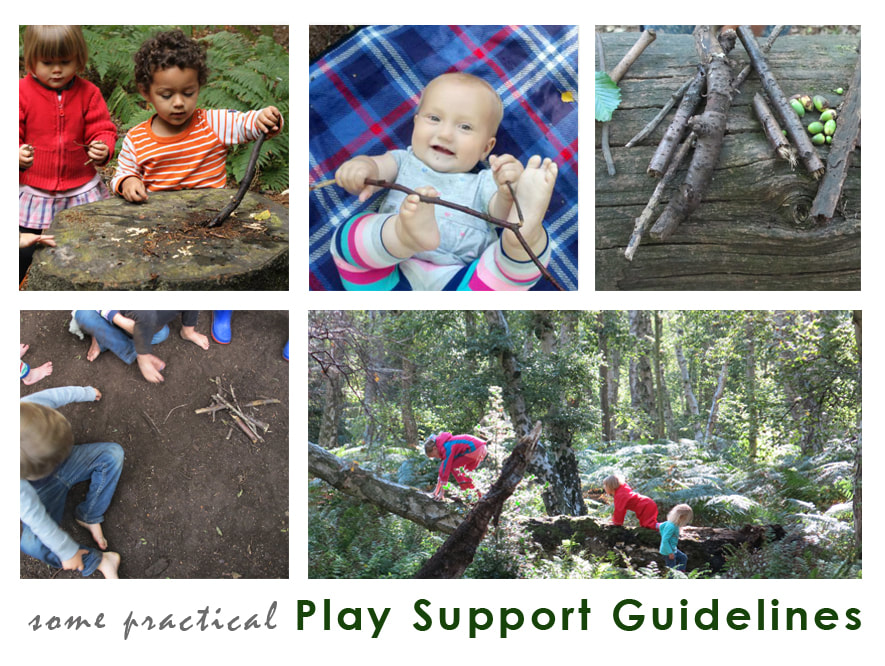|
Written by Clare Caro All children need the space, place, time and opportunity to follow their own play-urges. What kind of play? The word ‘play’ is used in many ways to mean different things. Here we talk about the play intelligence that is embedded into the very nature of the human being. And through play, intelligence unfolds. Play Is In The Child Children of all ages follow their genetically encoded play-urges naturally. We can see these Universal Play Patterns being played out today, just as they have throughout time, in every culture, on all continents. Play is the opportunity for children to become capable, do things themselves, grow their autonomy and learn how to learn. Because play intelligence is ‘built in’, it means that the child can lead their own play – without being taught or having toys, activities or ‘helping hands’. When play unfolds for the player they know exactly what to do, in the right sequence, and at the right pace. And they find around them all the objects they need for their play. In play the child is capable Benefits Play intelligence grows skills that children take with them through life – benefits such as problem solving and lengthy attention spans, self-confidence and motivation, self-direction and creativity, social skills and imagination, physical agility and spatial awareness, risk management and working within one’s own capabilities … and so much more! Children who play in nature gain a valuable, sensory-rich relationship with nature. To provide our children with the opportunity to play as nature intended - they need plenty of the space, time to play uninterrupted, in a play-rich environment from a secure base. You Are The Secure Base As the child’s parent, caregiver, key-worker, play-ally, primary caregiver your role is important. YOU are everything your child needs to feel safe, and when children feel safe they can play with their full attention. Because play is an ‘inside job’, our ‘external care’ takes on a different role when supporting our children at play. We don’t just ‘leave our children to play’, far from it, we are present in a different way. We are the secure base for our children to move from and return to, the eyes of support, and there to step in only when necessary. Step back and observe your children at play When we step back we allow the child the freedom they need to unfold at their own pace. When we observe we see our children grow capable and confident, while at the same time providing them with the security and freedom they need to thrive. We Invite You To Observe We have come up with a list of Top Tips to help ‘play-allies’ like you in your role:
Children who are capable are safe Unnecessary Play Interruptions Traditionally a lot of play is interrupted in the name of ‘safety’ and ‘helping’ the child to become capable. These well-intended intentioned interruptions are both counter-productive to both play and safety. Referring back to the list of benefits: Problem solving cannot develop when we step in to fix problems for them. Lengthy attention spans cannot develop when we interrupt with our questions, praise, frequent warnings and entertainment. Self-confidence and self-motivation cannot develop when we prompt them into being ready. Self-direction and creativity develop when we stop having ideas for them, like such as setting up activities and directing them. Social skills cannot develop when we are hovering and looking for ‘teaching moments’. Physical agility and spatial awareness cannot develop when we help them to balance or climb, or put them into positions that are way beyond their own capabilities. Imagination cannot develop when we remove their found treasures and give them image-ready toys. Risk management and working within one’s own capabilities are impossible when there are ‘helping hands’ managing us them beyond our their own capabilities. When we support play we refrain from imposing our external influences on our children’s play. We only interrupt when absolutely necessary. Interrupting Play When Necessary A safe and secure environment is integral for play to thrive. Physically safety and emotionally security together provide the right conditions for optimum optimal learning. The brain’s learning- activity shuts down when we don’t feel safe. Play is by nature a peaceful experience where the player manages their excitement and risk. Occasionally we need to step in and restore the safe and secure environment. We step in, to stop aggressive-violent behavior (such as harming others or oneself, or destroying property), where there is a hazard (rotten wood or poisonous plants), or when a child is out of their depth and unable to manage physically or emotionally. If you spot a potentially unsafe situation developing, move in calmly and quietly. We move in quickly to block any unwanted physical contact or falls. When a child is ‘out of control’ we return them to the secure base to reconnect and calmly restore their self-control. These guidelines can be found in the handy formate of a print-ready, double-sided A4 PDF. Click this link! Copyright © 2017 Clare Caro, All rights reserved
|
|
Copyright © 2024 Nature Play
|


 RSS Feed
RSS Feed